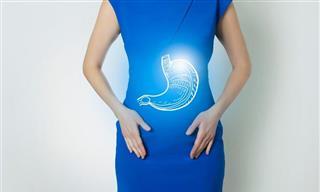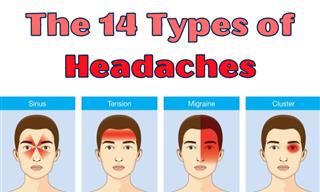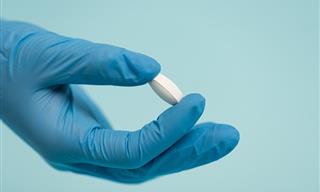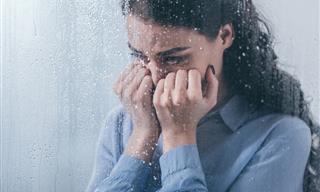Prepare Before Your Trip
No matter where you’re traveling to, you should make a few preparations that would ensure you get the best treatment if necessary and lower the likelihood of getting sick as much as possible. Here are a the most important things to consider before you head out on a journey.
1. Do you have medical insurance coverage at the country of destination?
Most U.S. insurance policies, for example, don’t provide international coverage, and American travelers usually have to purchase separate travel insurance. A variety of both short-term and long-term plans are available today. For a guide on medical travel insurance, follow this link.

2. Let your physician know you’re going to travel and ask if you can contact them via e-mail or telephone if needed
Not only will your doctor be able to give you important advice about any preventative measures you want to take before your trip, they will also help you find out if you need to take any medications or vaccinations (such as hepatitis A, typhoid, yellow fever, or influenza) before the trip. Different countries have different health risks associated with them, here is a guide to the possible health risks you might encounter abroad divided by country.
3. Do you have any preexisting conditions or severe allergies?
If so, it is recommended to ask a printed letter from your physician describing your condition and the list of the generic names and doses for any prescription medications you might be taking. Make sure to carry this letter on your person at all times.
4. Establish an emergency contact
In many passports, there is an information page where you can provide the name, address, and telephone number of a trusted person to contact in case of emergency. Fill it out and let that person know so that they’ll be ready to help if need be. If there is no such page in your travel document, simply insert a card with the same information into your passport.
5. Create a travel medical kit and always keep it stocked
Here are the things you should always keep in your first aid kit (you can add additional items):
- cold medicine
- indigestion medication
- painkillers
- allergy medicine
- ibuprofen
- wipes
- hand sanitizer
- band aids and bandages
- an antiseptic
- a thermometer.
People can often get the flu when traveling by plane, so make sure to wipe down the table in front of you and wash and sanitize your hands often. The second most common problem are digestive issues, such as constipation or diarrhea, since people tend to try a lot of new foods when they’re abroad, so make sure to have medications to relieve those symptoms, especially if you know you’re prone to those kinds of issues.
6. If you’re taking any prescription medications, make sure to keep them in their original packaging with clear labeling
Also, the medications you’re taking might be considered a narcotic and be illegal in your destination country(ies), so contact the embassy of the country you’re visiting to make sure they’re allowed and your medication will not be taken away from you on the border.
7. Research the medical facilities available in your destination and devise an emergency plan before you travel
There are a few things you can do to ensure you will get the healthcare you require:
8. Maintain Good Hygiene and Eating Habits At All Costs
Wash your hands as often as you can when you’re traveling and make sure you eat food that is fresh and prepared in clean conditions. Research the country you’re visiting very well and find out whether you should avoid certain types of street food and whether tap water is safe to drink.
When you’re in public transportation, especially on the plane, wipe down your surroundings with an antibacterial wipe, disinfect your hands and drink a lot of water. Finally, no matter how busy your schedule my be, make sure to have regular and healthy meals, this will not only ensure your immune system is in top shape, but it will also prevent any digestive problems.
How to Act When You Got Sick
In the previous section, we discussed prevention and planning, but what exactly should you do when you’re already sick? First things first, calm down and don’t get too upset. The reality is that a lot of travelers get sick all the time, as the hallmarks of traveling, such as jet lag, stress, changes in altitudes and different climates can all wear you down. Here are a few things to consider:
1. Assess the Severity of Your Symptoms and Act Accordingly
Did you get a scratch on your knee, a flare-up of eczema or do you have a sudden high fever for no apparent reason? While in the first case all you might need is a band aid from your first aid kit, the second and third scenarios are more nuanced. If you experience a flare-up of a chronic condition, for example, you might need to go to an outpatient clinic, especially if your usual medication isn’t helping or the symptoms are more severe than usual.
You can also contact your doctor at home for advice if you know they will answer soon. The final scenario is most likely a medical emergency, especially if you’re in a country with a high risk of contagious diseases.
2. Take Your Destination Into Account
As we mentioned previously, different locations have various risks associated with them. While drinking tap water in Vienna is the right thing to do, you might want to avoid that in many African and South American countries. The same rule works for your symptoms: if you experience a sudden high fever while traveling to the Alps in the winter, the chances that you’ve contracted malaria are nearly null, while in other countries it is much higher and should be taken into account.
While both cases might require medical attention, the latter case requires immediate hospital care, whereas in the former one, visiting an outpatient facility might suffice.
3. Be Ready To Cancel Plans and Stay In Bed

No matter how appealing the plans for the day may be, if you’re sick, it’s best to avoid intense physical activities or even a day of sightseeing. Even a flu can quickly develop into something more serious, like bronchitis or pneumonia, if you exert your body too much and don’t get the rest you need. If you do see that your cold or other symptom persists for days, see a doctor.
4. Have you ever experienced these exact symptoms before?
If you regularly get constipated whenever you travel abroad, for example, there is no need to run to the emergency room when you feel the same symptoms again on a trip. Instead, you can discuss this with your doctor before the trip, and they can prescribe you medications that will alleviate this unpleasant symptom.
Another thing you could do is to go to an outpatient clinic and ask for treatment, but the need for hospitalization is unlikely, unless the symptom persists for days. You should be more careful with more general symptoms, however, such as nausea or a high fever because they can be caused by a variety of conditions of varying seriousness.
In the end, your health is of the highest priority and you should always prepare to protect and preserve it as much as you can. Even if you cannot avoid getting sick, make sure to know where to go and what to do, especially when you’re traveling. If you found this article helpful and think it may help others, please share it with others.
 Go to BabaMail
Go to BabaMail























































